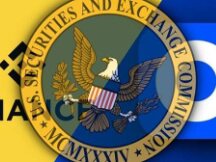Is it possible to tax people in the meta world?
Taxation is one of the most important aspects of a country's economy, it concerns the development of the national economy, the equitable distribution of relations, and the provision of services to the people, and plays an important role affecting the whole body. . .
With the frequent development of web3.0 and digital marketing, it is necessary and appropriate to involve the meta-space industry in tax surveillance. If so, can existing laws keep up with the meta-global economy? Today, Sister Sa's legal team will provide participants with an in-depth analysis.
It is not yet clear whether the business transactions of users (residents) of the Global Meta are taxed.
Our country has been clear with virtual assets in the legal protection of "civil law" and recognized the legitimacy of virtual assets. (In article 127 of the "civil law", "If there is a law concerning the protection of data and virtual objects in network, it must be respected.) By simply inferring them, the existing tax management systems.
Business organizations in the meta world must be legally taxed.
According to article 56 of the Constitution of the People's Republic of China, citizens of the People's Republic of China are required to pay taxes according to the law. Citizens should do it. Therefore, if the users of Metaverse are Chinese citizens, the marketing of Metaverse (including, but not limited to, the promotion, marketing, use and inheritance of virtual assets and virtual currency) is the basis of legal law.
At the same time, our country's "income law" states that "people who have or are homeless in China who have lived in China for the rest of their life A total of 183 days per year is taxable for a resident of a person who is homeless and not in China, or a person who is homeless but has lived in China for less than 183 days is a person Not in the country, you must pay personal taxes in as a consumer.
Let's look first at whether the meta-global market (consumers, residents) is taxed on the basis of personal income. According to Article 2 (1) of the “Personal Income Policy” of the Republic of Korea, personal income is paid for (1) wage income (2) labor income (3) self-employment. Income from clerks (4) real estate (5) operating income (6) interest, dividends and income (7) rental income (8) income in exchange for housing (9) income is not the same.
As mentioned above, there are many industries and industries that can be developed in the meta-world, and many industries in the meta-world and real world can be formed in different meta-universes. Many personal incomes such as wages, salaries, and business income paid with virtual benefits in the Nawien universe appear to be taxed legally.
Concretely, in accordance with the "Law of the Company, the Company is entitled to the Confidentiality Policy" amended in 2019, income and earnings are defined as "personal salary, salary, special allowance, salary increase , division of labor, employment or employment. -A benefits, allowances and other income. "
Labor income includes personal income from work such as design, decoration, installation, art, inspection, testing, medical, legal, accounting, consulting, teaching, translation, inspection, drafting, art, sculpture, film and television, audio, video Recording, revenue Performing arts, performing arts, advertising, presentation, support, services of referral, brokerage services, organizational assistance and other employment services. "
Therefore, Chinese citizens' market share in the global meta and income in the meta edge can be included in our national tax policy. However, this decision does not necessarily comply with the provisions of the tax law, which is the main reason for the lack of tax control in the Metaverse.
Taxation of the metaverse is prohibited by law.
Tax Law Insurance is a fundamental part of tax law, which means that if a taxpayer wants to pay taxes to a taxpayer, he will have to comply with the law. This is not only a restriction on the federal electricity tax, but also a law governing fiscal power.
It is an important means for the governments of the countries of today to protect the governments against the abuse of public power and the arbitrary taxation of the population. In particular, in order to tax organizations in the metaspatial industry, it is necessary to clearly indicate to the taxpayer and to tax in the legal form. National People's Congress), content, tax rates and methods of taxation, otherwise it cannot pay taxes.
Therefore, a tax law developed by the National People's Congress (NPC) and its committee is the basis and prerequisite for taxation in the metaspatial industry. . At present, Korea has not enacted a metaverse tax law, making it difficult to control the taxation of metaverse operations.
As the metaspatial industry grows in the future, without clear tax regulations, the national wealth will drop sharply, construction and social justice will be affected. . It is important to change the existing law or create a new law for the Metaverse business.
The meta world needs tax management.
The Metaverse prefers to start a completely free business.
An unregulated free market is the ultimate goal that has been achieved since the birth of blockchain technology, and although there are many characteristics of blockchain technology, most of the agents of blockchain technology are decentralization. Based on this, a strong metaverse protective backing, anti-control, and control characteristics from the start and free trade are the most important factors in determining the benefits of those who create the metaverse.
As a result, the current meta-world is trying to develop rule-based rules of procedure (e.g., algorithm rules), which are similar to real-world rules, but with better performance. to smart contracts. In other words, the data assets of the metaverse users are in the wallet with the private key, and the circulation of the data assets is also released by all financial and tax administrations.
Explosive growth of industries such as Metauniverse and NFT
On March 11, 2020, digital artist Beeple's project "Daily, First 5000 Days" sold for $ 69,346,000 (approximately RMB 450 million). According to the "NFT Industry Development Report 2021" published by Carbin VC in June 2021, the NFT industry has grown several times each year. From 2019 to 2020, the total USD transaction volume nearly tripled from $ 62.86 million to $ 2.5 billion. As the Metaverse continues, we have reason to believe that the Metaverse market will continue to grow.
Additionally, integration will be the next meta-world challenge, and knowing the interactions will lead to closer integration between the meta-world and the real world. Interoperability represents the violation of user restrictions on the use of existing virtual assets, and these tools allow users to bring their own virtual assets through their own ecosystem. .
For example, users can use, trade, and dispose of virtual assets such as NFTs created and acquired on Metaverse A by replacing them with Metaverse B. Good steps in the development of the metaverse, and only the metaverse with interactions Real world can allow virtual assets such as NFTs to have real world properties similar to those in the real world. . . This is an important step for the integration and integration of reality and reality in the meta world and the real world.
Participants in the Metauniverse industry need tax laws.
On the other hand, tax surveillance aims to identify the legitimacy of industries like the global meta. Neither the NFT nor the global meta-world lack legal and regulatory restrictions, so the rights and responsibilities of the two companies in the NFT industry are currently unclear to both parties, cannot be protected by the law, and even their legitimacy, is often questioned. Companies in the Metauniverse and NFT industries are still at risk of violating the right to develop and implement new blockchain technologies.
Meanwhile, compliance with tax oversight can contribute to the success of metaverse businesses and the NFT industry, for example, regulatory oversight can generate legitimate revenue, benefit NFT editors, and provide after-sales revenue for clients. . This approach is crucial to open up the secondary NFT industry and contribute to the development of the metaverse and NFT markets.
enter at the end
Not only Metaverse, but also other digital assets based on blockchain technology are in urgent need of tax oversight, which is not a demand, but a two-way rush. Community justice needs to be more tax-focused and profitable to promote, and the blockchain technology industry needs more attention to 'make a name for itself'.

Scan QR code with WeChat






























